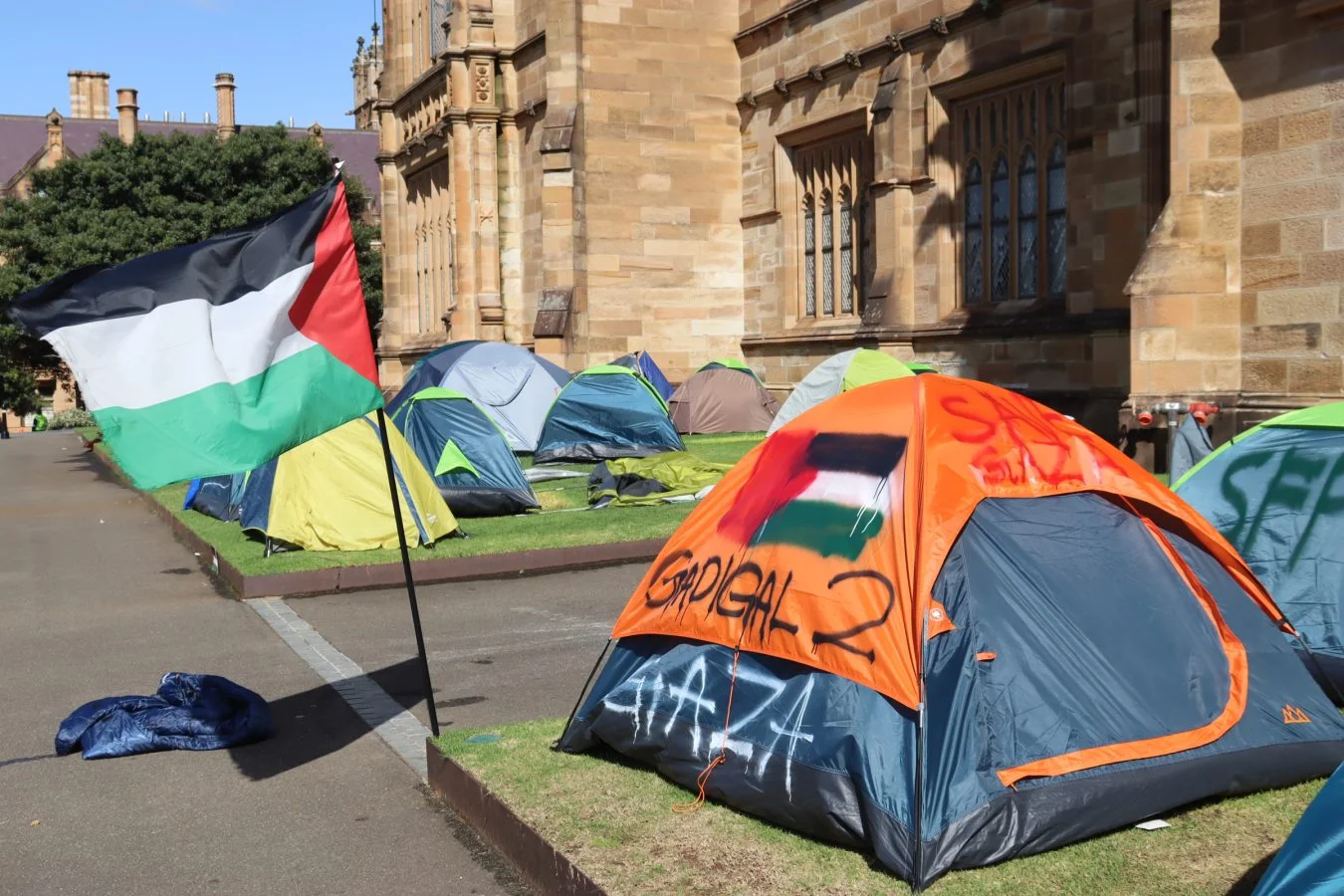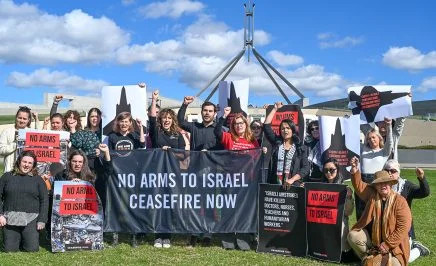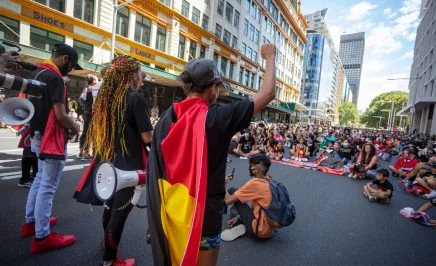In response to the University of Sydney’s new Campus Access Policy, which would disallow university students from protesting without advanced notice, and reports that the University of Melbourne is using surveillance technology to identify student protesters in a potential breach of privacy laws, Amnesty International Australia urges universities to protect students’ right to protest.
Amnesty International Australia stands in solidarity with student protests and urges universities to uphold their campuses as spaces where freedom of expression, academic freedom, and the right to peaceful assembly are embraced, safeguarded, and protected.
“University campuses should be spaces for academic freedom, open debate, and the right to protest,” says Mohamed Duar, Occupied Palestinian Territories Spokesperson.
“Students have every right to protest how their tuition fees are allocated, and universities should respect and support these expressions of freedom of expression and assembly.”
“Disciplinary action against students only serves to unfairly restrict students’ right to protest, and Amnesty calls on the university to work with students to facilitate their right to peacefully protest instead of punishing them. Students should not face expulsion or suspension for taking part in peaceful protest.”
Amnesty International Australia has signed an open letter expressing its concern that USYD’s Campus Access Policy breaches the obligations of the University under the Principles for the proper management of assemblies set out by the UN Special Rapporteur on freedom of peaceful assembly and association.
The University of Sydney’s Campus Access Policy requires students to apply for a permit to protest. The UN Human Rights Committee has stated in General Comment No 37 that having to apply to authorities for a permit to protest undermines the right to protest and that authorities must accommodate spontaneous protests for which notification is not practicable or appropriate. Lack of notification should not be used as a basis for dispersing a protest.
Amnesty International Australia is also concerned by reports that the University of Melbourne has tendered CCTV footage and Wi-Fi location data as evidence in misconduct hearings this week. When the University introduced the tracking technology in 2016, it stated that it could not be used to identify individual students.
Amnesty objects to the use of mass surveillance to curtail people’s right to protest, and considers its use in this manner as a breach of the right to privacy. There is a global trend of using technologies of mass surveillance on activists and protesters. People should not have to fear being identified, tracked, harassed and persecuted, simply by exercising their right to freedom of assembly.
Use of surveillance technology is being used across the world to intentionally target certain individuals or groups of people based on their protected characteristics, including ethnicity, race and gender. The University of Melbourne’s use of surveillance technology on students participating in protest, and the presentation of this data as evidence in misconduct hearings, is a concerning step down the path of mass surveillance of citizens. Australian universities must resist any creep toward mass surveillance and monitoring of students’ peaceful protests on campus.
“Across the world, student protests have been at the centre of fundamental human rights struggles for generations. We are witnessing the largest anti war protests ever and must remember the historic role that students played in demanding civil rights in the USA, First Nations justice in Australia, the end to apartheid in South Africa and the end of the Iraq war,” said Mohamed Duar.





